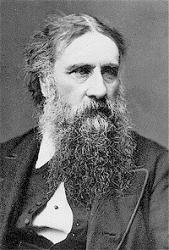Planning worship?
Check out our sister site, ZeteoSearch.org,
for 20+ additional resources related to your search.
- |
User Links
Person Results
John Baptiste Calkin

1827 - 1905 Composer of "NOX PRAECESSIT" in The Cyber Hymnal John Baptiste Calkin United Kingdom 1827-1905. Born in London, he was reared in a musical atmosphere. Studying music under his father, and with three brothers, he became a composer, organist, and music teacher. At 19, he was appointed organist, precenter, and choirmaster at St. Columbia's College, Dublin, Ireland, 1846 to 1853. From 1853 to 1863 we was organist and choirmaster at Woburn Chapel, London. From 1863 to 1868, he was organist of Camden Road Chapel. From 1870 to 1884 he was organist at St. Thomas's Church, Camden Town. In 1883 he became professor at Guildhall School of Music and concentrated on teaching and composing. He was also a professor of music and on the council of Trinity College, London, and a member of the Philharmonic Society (1862). In 1893 he was a fellow of the College of Organists. John and wife, Victoire, had four sons, each following a musical carer. He wrote much music for organ and scored string arrangements, sonatas, duos, etc. He died at Hornsey Rise Gardens.
John Perry
John Baptiste Calkin
George Macdonald

1824 - 1905 Person Name: George MacDonald Author of "O Son of Man" in The Cyber Hymnal Macdonald, George, LL.D., was born at Huntly, Aberdeenshire, Dec. 10, 1824, and educated at King's College, Aberdeen, where he graduated M.A., and from which he afterwards received the honorary degree of LL.D. For a brief time he studied for the Congregational ministry at Highbury College, London, and then became the Minister of the Congregational Church at Arundel, Sussex (1850-53). He afterwards preached for a short time to a small company at Manchester and Bolton. Relinquishing the ministry, he became Lecturer on English Literature at King's College, London, and ultimately gave himself up entirely to literary work. Dr. Macdonald has acquired a great reputation by means of his works of fiction, most of which were originally contributed to magazines, and the most notable of which are David Elginbrod; Robert Falconer; Alec Forbes of Howglen; and Annals of a Quiet Neighbourhood. He was some time Editor of Good Words for the Young, and wrote England's Antiphon for Macmillan's Sunday Library. His poetical works are:—
(1) Within and Without, 1855; (2) The Disciple, and Other Poems, 1860; (3) The Diary of an Old Soul (printed for private circulation), 1867"; (4) Exotics, a volume of translations from the German (most of which first appeared in the Sunday Magazine), 1876; and (5) A Threefold Cord, 1883, part of which previously appeared in his Works of Fancy and Imagination, 10 vols., 1871.
Most of his original hymns were contributed to Hymns and Sacred Songs for Sunday Schools and Social Worship, &c, published by Fletcher and Tubbs, Manchester, in 1855 (2nd. edition, 1856), and of which his brother, and the Rev. G. B. Bubier were the editors. The original hymns, which are signed "G. Macdonald," in this collection are:—
1. A quiet heart, submissive, meek. The Meek inherit the Earth.
2. Daylight fades away. Second Advent.
3. Father, I well may praise Thy name. Sunday Morning.
4. Father, these souls of ours have been. Blessed are the Pure in Heart.
5. If we were longing for the food. Blessed are they that Hunger and Thirst after Righteousness.
6. It was an awful hour that gave. Blessed are the Merciful.
7. Let Thy own voice, 0 Father, say. Blessed are they that mourn.
8. 0 Son of Man, Thy Name by choice. Blessed are the Meek.
9. Our Father, hear our longing prayer. Blessed are the Poor in Spirit.
Some of these hymns were afterwards revised by their author. The next two are from The Disciple, and Other Poems, 1860 :—
10. O God, Whose daylight leadeth down. Evening.
11. O Lord [God] of life, Thy quickening voice. Morning.
Dr. Macdonald's hymns are rich in ideas, but are touched with a mysticism which renders them a little difficult of apprehension. They are however of great value in setting forth truths rarely expressed in hymns, and are likely to grow in favour. [Rev. W. Garrett Horder]
-- John Julian, Dictionary of Hymnology (1907)
=======================
http://en.wikipedia.org/wiki/George_MacDonald
George Macdonald


 My Starred Hymns
My Starred Hymns


